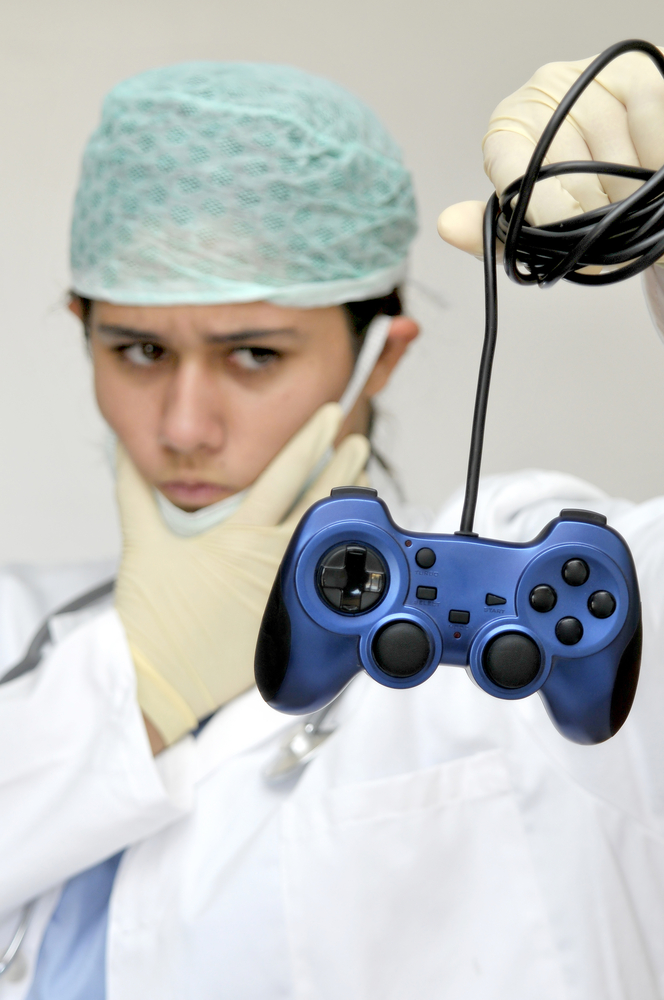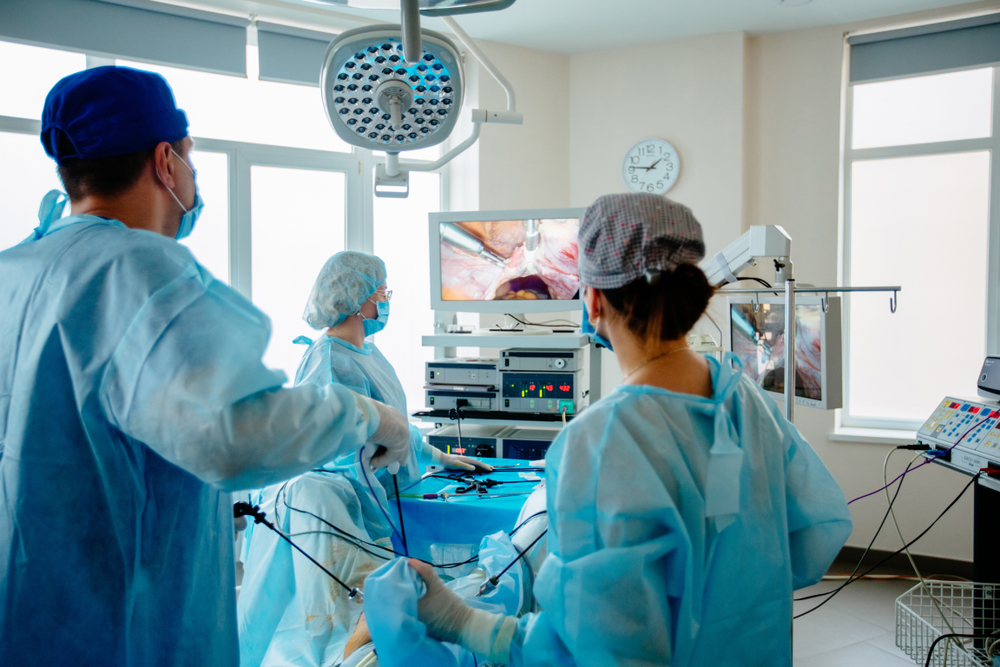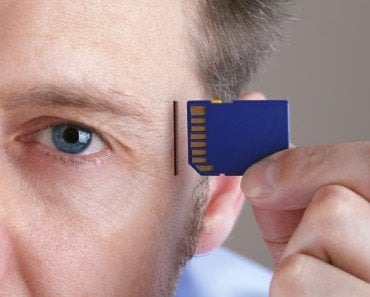Doctors who possessed video game skills, such as fine motor control and reaction time, showed increased speed and reduced errors in laparoscopic surgeries. Surgeons who played video games for more than 3 hours/per week demonstrated better accuracy in their surgical skills.
Most people reading this likely have some experience with video games, even if it’s as rudimentary as Tetris. Others might be professional gamers who make bank playing games. Regardless of our skills, all of us will be familiar with some elder admonishing those “kids” who waste their time playing video games.

Well, if you ever needed a retort to justify your gaming, here’s a great one. Video gamers make better surgeons. or at least better laparoscopic surgeons.
Let’s find out how!
Recommended Video for you:
What Is Laparoscopic Surgery?
Laparoscopic surgery is an advanced surgical technique that involves cameras and very small surgical instruments, which allow the surgeons to delicately operate in the abdomen and pelvis. The benefits of this technology are numerous, but the most important one is that much smaller surgical incisions are required on the body. This allows for a significantly shorter recovery time. The use of cameras inside the body also allows for better accessibility and the ability to perform more complex procedures.
Laparoscopic surgery has become commonplace in most urban hospitals. Some of the most common surgeries done using this technique include the treatment of hernias and removing enlarged appendices.

A well-trained surgeon should be able to manipulate tiny instruments attached to long probes while looking at a screen for this type of surgery. However, as you can imagine, practicing surgery isn’t the same as practicing pottery. Don’t let medical TV shows fool you… surgical residents don’t practice these things on their colleagues.
So, what can help them train?
Also Read: What Is The Tetris Effect And How Does It Affect Your Thinking And Memory?
Enter Stage Right… Video Games!
Gamers will talk endlessly about how they benefit in different ways from video games. Some of these gamers have gone on to become surgeons and carried some of their skills along with them. Their anecdotal observations inspired a study by Dr James C Rosser, Jr., M.D. from the department of General Surgery, Beth Israel Medical Center. They hypothesized a link between video gaming and laparoscopic surgical skills.
Multiple previous studies have shown that video gaming can positively affect hand-eye coordination and reaction time, as well as better spatial visualization, which is the ability to imagine the dimensions of a specific space. They also show enhanced visual attention, which means they show an increase in the number of visual items and information they can process over time.
What better way to prove this than by conducting a little experiment and quantifying these benefits?
Also Read: Does Playing Violent Video Games Make You More Aggressive?
But Why?
For those of you in research fields, you know that no study can be solely motivated by the desire to prove a point, so why was this study conducted?
The introduction of laparoscopic surgery requires specialized training. The initial ‘learning curve’ period is when most mishaps occur. Medical deaths have become the 8th leading cause of death in the US alone. Moreover, the age-old practice of ‘see one, do one, teach one’ does not apply for complicated procedures such as this one. This practice might work for simpler procedures, like collecting blood samples or catheterizing a patient, but it’s a lot harder for a surgeon trainee to learn laparoscopy just by observing someone else doing it. What’s worse, they may soon be expected to teach their junior colleagues without having properly learnt the skills themselves.

The use of simulator training and video games have already proven useful in various other professions, including driving, flying, sports like golf and even the military. So, if over-the-counter video games did help surgeons with their skills, it would be a cost-effective method to train them.
Who And Where?
33 surgical residents and attending physicians voluntarily participated in this study, which took place in the Beth Israel Medical Center. The study centered around the world-renowned Rosser Top Gun Laparoscopic skills and suturing program conducted by this institute.
How Was The Study Conducted?
The experiment had three elements.
Element 1 was a questionnaire about video game experience, episodes of play per week, length of each episode and type of game. It also asked about the surgical experience, years of training/practice, number of laparoscopic cases performed and any subspecialty.
Element 2 was the Top Gun course itself; a 1.5 day course involving 4 specific laparoscopic drills, each measured by an electronic proctor that scored points and errors.
Element 3 had the doctors play the over-the-counter video games; this was the fun part of the study. Participants, in groups of 3, played for 25 minutes. Three specific games were chosen based on the applicability of certain skills for completing the Top Gun course. This included hand-eye coordination, fine motor control, visual attention processing, reaction time, spatial distribution and 2-dimensional depth perception.
All 3 games were new to the participants. Scoring consisted of the time taken to complete two of the games and the number of targets hit for the other. They even chose games that didn’t have bonus points to avoid skewing the data. Leave it to scientists to bring boring statistics into video games!
The three games they played were Super Monkey Ball 2 on the Nintendo Gamecube, Star Wars Racer Revenge on Sony Playstation 2, and Silent Scope on Microsoft Xbox. If there are any fans of these games reading this, know that you’ve been vaguely training for surgery!
Previous video game experience was also measured by calculating the Amount of Video Game Experience Scale for each participant based on 5 items measuring both past and present experience. Participants self-reported these items.
Now For The Moment We’ve All Been Waiting For…
The study grouped and analyzed the Top Gun Test Scores of each participant based on the following criteria,
- Past video game player (based on survey response)
- Current video game player (based on survey response)
- Those that demonstrated video game skills, as measured in the 3 games.
- Those who had never played video games before, non-players.
Upon comparing the scores of non-players with the other three, they found that:
- Surgeons who had some experience with past video game play performed 33% better than those who had never played before;
- Current video game players performed 26% better in the Top Gun score, as compared to non-players; and
- They compared the participants solely on the demonstrated skills in the games and their performance in the Top Gun test. Participants ranked into 3 groups based on their video game performance. Those that came in the top group made 47% fewer errors and were 39% faster. They scored 41% better in their overall Top Gun score.
Claims Of The Study
Conclusively, possessing video game skills, be it past, present or demonstrated during the test, resulted in increased speed and fewer errors in laparoscopic surgical skills. Importantly, this error reduction signifies a huge impact on patient safety.
Moreover, they compared the Top Gun scores with video game play experience and other factors like years of training and the number of cases performed. They found that past and current video gaming capabilities were more important than these factors.
From the study, surgeons who played video games for more than 3 hours per week demonstrated better speed and accuracy in their surgical skills. This is considerably lower than the adolescent average video gaming time of around 9 hours per week.
Fair Warning
This is merely a correlational study, and therefore does not allow one to comment on the cause behind the findings. However, one may surmise that since the surgeons tested were not experts in laparoscopic surgery, their video gaming experience contributed to their better scores in the Top Gun Laparoscopic Skills test.
Multiple other studies showed similar results supporting the effect of video games on acquiring certain Laparoscopic surgical skills.
Two Sides Of The Same Coin?
There are plenty of such studies showing that video games involving specific tasks do help in acquiring some of the key skills required in Laparoscopic surgery. This can have several applicable benefits, including cost-effective training, better selection of students, and downstream improvement in surgical patient care.

That being said, one must also consider the negative aspects of video gaming. Excessive gaming in adolescents has been associated with poor mental and physical health, as well as poor academic performance. In other words, you can’t train for surgery if you can’t make it to medical school!
References (click to expand)
- (2007) The Impact of Video Games on Training Surgeons in the 21st .... JAMA Network Open
- EÂ da Silva —. Gamers and Robotic Surgery. cdn.publisher.gn1.link
- Tsai, C., & Heinrichs, W. (1994, August). Acquisition of eye-hand coordination skills for videoendoscopic surgery. The Journal of the American Association of Gynecologic Laparoscopists. Elsevier BV.
- Rosenberg, J., Grantcharov, T. P., Bardram, L., & Funch-Jensen, P. (2003, July 1). Impact of hand dominance, gender, and experience with computer games on performance in virtual reality laparoscopy. Surgical Endoscopy. Springer Science and Business Media LLC.












